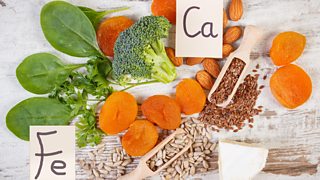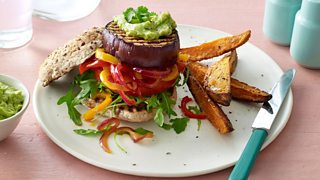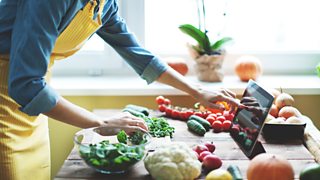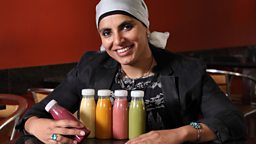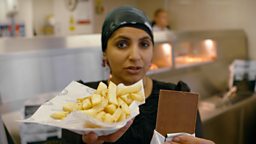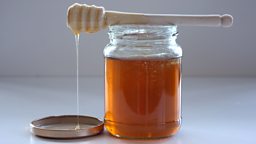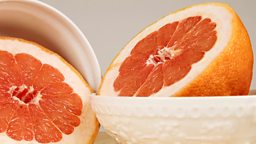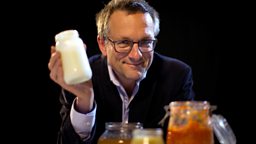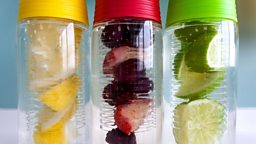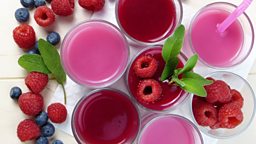Can I go vegan and stay healthy?
The popularity of veganism has exploded in recent years, with more than four times as many people opting to cut animal products out of their diet than four years ago.
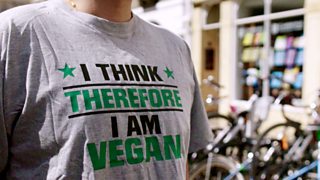
But how easy is it to go vegan and stay healthy? To find out, Dr Giles Yeo went vegan for a month.
The experiment
We asked Dr Duane Mellor from Coventry University, a dietitian and senior lecturer in human nutrition, to assess specific aspects of Giles’s health before and after his month of being vegan. Duane measured his cholesterol, body fat, weight, and his levels of iron, folate, zinc and vitamins A, E, D and B12. Duane also gave Giles a list of foods to eat to stay healthy and avoid becoming deficient in key nutrients.
The results
After one month on a vegan diet, Giles lost 4kg and his body fat dropped by 2%. His BMI improved by 6% and his cholesterol fell by 12%. Thanks to Duane’s food suggestions, he didn’t become deficient in any key nutrients. However it’s more difficult to be so nutritionally diligent in the longer term and vegans can become deficient in nutrients you’d normally get from animal-based foods, such as iron and vitamin B12.
As for whether going vegan is actually better for your health in the longer term, there’s no definitive answer, as we don’t yet have sufficient data from large-scale studies.
Filling the gaps
There are certain essential nutrients that we normally get from animal-based foods that vegans need to replace with alternative foods or supplements.
- Vitamin D - Vitamin D is important for our bone health. It is produced in our body when sunlight hits our skin and is also present in a few animal products. Vegans might want to consider taking a supplement, but beware that not all of them are vegan-friendly. Vitamin D2 is always suitable for vegans, whereas some sources of vitamin D3 derive from sheep wool.
- Vitamin B12 – We need vitamin B12 to keep our blood healthy. It is not produced by plants, but there are plenty of vegan products on the market, such as milks, spreads and yeast products, which are fortified with it.
- Omega 3 Fatty Acids - These are essential for brain function and are found in oily fish. Other good sources are flaxseeds, chia seeds, walnuts and soy beans.
- Calcium - While calcium is synonymous with dairy, there are plenty of vegan sources too. Tofu commonly contains calcium and there are calcium-fortified alternatives to cow’s milk available. Other good sources include green vegetables such as kale, pak choi, okra and spring greens, as well as almonds, chia seeds and dried figs.
- Iodine - Iodine deficiency is not uncommon in the UK, even in non-vegans, particularly amongst young women. In the UK, cow’s milk is our main source of iodine, and the non-dairy alternatives, like almond drinks, have much lower levels. You can get iodine from seaweed (though the amounts are unpredictable) but you may need to take a supplement.
- Protein - Some vegans worry that they aren’t getting enough protein, a nutrient people tend to associate with meat. However, eating a balanced diet with plenty of plant-based protein sources should provide all that you need. Particular foods to try and include are tofu, soy, beans and pulses.
- Iron - Cutting out meat can also affect your iron levels - red meat contains a form of iron that is easy for our body to absorb, whereas the iron that you get in fruit and veg is less readily available. One solution is to accompany iron-rich vegan foods with a rich source of vitamin C, like orange juice, which helps to make the iron more absorbable.
With any new diet, it’s tempting to make sweeping changes overnight, but you might find it more realistic to phase in your new lifestyle gradually.
Dietitian Dr Duane Mellor advises:
- Try replacing one product at a time, such as replacing cow’s milk with a soy drink fortified with calcium.
- Try focusing on one meal time, such as lunches, before moving on to breakfasts and dinners.
- Start with a day or two of being vegan per week and work your way up to going plant-based full time.
- Work out what your go-to vegan snacks would be for when you get peckish.
- Practise cooking a few nutritionally-balanced vegan meals that you enjoy.
- Canned or frozen fruit and vegetables can be useful allies, as more often than not they are as nutritious as their fresh counterparts.
